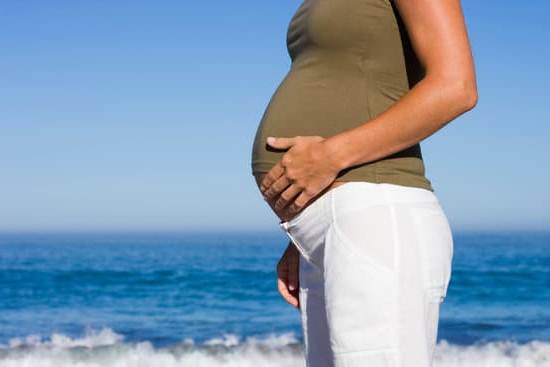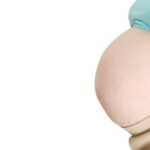Can pregnancy tests expire? This is a common question that many individuals may have when considering taking a pregnancy test. Pregnancy tests play a crucial role in determining whether or not someone is pregnant, and the accuracy of these tests can greatly impact important decisions and emotions. However, there are often misconceptions surrounding the use of pregnancy tests, including confusion about their shelf life and expiration dates.
Understanding how pregnancy tests work is essential to comprehending why expiration dates are relevant. Pregnancy tests detect the presence of human chorionic gonadotropin (hCG) hormone in urine, which is produced during pregnancy. The levels of hCG increase rapidly in the early stages of pregnancy, allowing the test to provide accurate results. Knowing how these tests function can help individuals better grasp the significance of expiration dates and their impact on test results’ reliability.
In this article, we will delve into the intricacies of pregnancy tests, exploring their shelf life and factors that can affect their accuracy. We will address the pressing question: can pregnancy tests expire?
By providing insights into signs indicating an expired test and best practices for storing them, we aim to equip readers with valuable information to make informed choices regarding pregnancy testing. Let’s unravel the mysteries surrounding the expiration of pregnancy tests and shed light on this vital aspect of reproductive health.
How Pregnancy Tests Work
Pregnancy tests play a crucial role in helping individuals determine whether they are pregnant or not. Understanding how these tests work can provide clarity and reassurance for those who may be seeking answers about their current reproductive status. When a woman becomes pregnant, her body starts producing a hormone called human chorionic gonadotropin (hCG). This hormone is released into the bloodstream and eventually makes its way to the urine, where it can be detected by pregnancy tests.
How Pregnancy Tests Detect hCG Levels
Most pregnancy tests on the market today utilize a method known as lateral flow immunoassay to detect hCG levels in urine. This process involves a chemical reaction that occurs when hCG is present in the urine sample.
The reaction results in visible lines or symbols on the test strip, indicating whether or not hCG has been detected. Some tests may require a certain level of hCG concentration to trigger a positive result, while others are more sensitive and can detect lower levels of the hormone.
The Role of Control Line
In addition to the test line that indicates pregnancy, most pregnancy tests also include a control line. This control line serves as a reference point to show that the test is functioning properly. If the control line does not appear, it could mean that the test is defective or expired, and the results should not be considered reliable. Understanding how pregnancy tests work can help individuals interpret their results accurately and with confidence.
Accuracy and Reliability of Pregnancy Tests
While pregnancy tests are generally considered reliable when used correctly, there are factors that can affect their accuracy, such as using an expired test. It is important to follow instructions carefully and check expiration dates before using a pregnancy test to ensure accurate results. By understanding how these tests detect hCG levels in urine, individuals can make informed decisions about their reproductive health and take appropriate next steps based on their results.
Shelf Life of Pregnancy Tests
Pregnancy tests are vital tools for women who suspect they may be pregnant. These tests provide quick and reliable results in the comfort of one’s own home, giving individuals the ability to confirm or rule out pregnancy without having to visit a healthcare provider immediately. However, like any other medical product, pregnancy tests have a shelf life that is important to consider for accurate results.
Understanding Expiration Dates
Just like medications and other medical supplies, pregnancy tests come with expiration dates. These dates indicate the period during which the test is guaranteed to provide accurate results. Expired pregnancy tests may not work as effectively in detecting the levels of human chorionic gonadotropin (hCG) hormone in urine, leading to false negatives or positives. It is crucial to always check the expiration date on a pregnancy test before using it.
Factors Affecting Accuracy
Several factors can influence the accuracy of a pregnancy test, even before its expiration date. Exposure to moisture, heat, or light can deteriorate the components of the test kit, affecting its sensitivity and reliability. Storing pregnancy tests in inappropriate conditions can lead to premature expiry or inaccuracies in results. As such, it is important to follow proper storage guidelines provided by the manufacturer to ensure optimal performance when using a pregnancy test.
Can Pregnancy Tests Expire?
Pregnancy tests are essential tools for women who suspect they may be pregnant and want to confirm their suspicions. However, there are common misconceptions about pregnancy tests, including whether they can actually expire. The shelf life of a pregnancy test is an important factor to consider when purchasing one, as expired tests may not provide accurate results.
So, can pregnancy tests expire? The answer is yes, pregnancy tests do have expiration dates, and using an expired test can lead to unreliable outcomes.
The expiration date of a pregnancy test is typically indicated on the packaging and should be carefully checked before use. Most standard pregnancy tests have a shelf life of around 2-3 years from the manufacturing date. However, this timeframe can vary depending on the brand and type of test.
Factors such as improper storage conditions like exposure to heat or moisture can also affect the accuracy of a test past its expiration date. It’s crucial to follow the manufacturer’s guidelines and ensure you are using a valid test for accurate results.
In order to make sure your pregnancy test is reliable and effective, it is important to store them properly. Pregnancy tests should be kept in a cool, dry place away from direct sunlight and extreme temperatures. Storing them in a bathroom cabinet or drawer where humidity levels can fluctuate is not ideal. By following the best practices for storing pregnancy tests, you can help maximize their shelf life and ensure that they provide accurate results when needed.
| Can Pregnancy Tests Expire? | Yes |
|---|---|
| Shelf Life | 2-3 years from manufacturing date |
| Storage | Cool, dry place away from sunlight and extreme temperatures |
Signs of an Expired Pregnancy Test
When considering taking a pregnancy test, it is essential to be aware of the expiration date of the test you are using. Just like any other product, pregnancy tests can expire, which may affect their accuracy in detecting pregnancy hormones. So, what are some common signs that indicate a pregnancy test may have expired?
Here are some key indicators that your pregnancy test may have reached its expiration date:
- Visible damage to the packaging or test strip
- Faded or unclear control and test lines after use
- An unusually long reaction time when waiting for results
- Unreliable and inconsistent results when compared with previous tests
It is crucial to pay attention to these signs as using an expired pregnancy test could lead to false results, causing unnecessary anxiety or incorrect conclusions about your pregnancy status.
In order to ensure accurate results, it is recommended to always check the expiration date on the packaging of your pregnancy test before using it. Additionally, storing pregnancy tests in a cool, dry place can help maintain their effectiveness until their expiration date. By being aware of these signs and best practices for utilizing pregnancy tests, you can confidently take the necessary steps towards achieving accurate results when determining your potential pregnancy.
Best Practices for Storing Pregnancy Tests
Pregnancy tests are essential tools for women who suspect they may be pregnant. However, there are common misconceptions surrounding these tests, including whether or not they can expire. In this section, we will delve into the best practices for storing pregnancy tests to ensure their accuracy and reliability.
It is important to note that pregnancy tests do have a shelf life, and using an expired test can lead to inaccurate results. The expiration date is typically indicated on the packaging of the test kit. Factors such as exposure to humidity, sunlight, and temperature fluctuations can affect the accuracy of the test even before the expiration date.
Proper storage of pregnancy tests is crucial in maintaining their effectiveness. Storing them in a cool, dry place away from direct sunlight and extreme temperatures can help prolong their shelf life. Additionally, it is recommended to keep the tests in their original packaging until ready for use to protect them from potential damage.
| Storage Tip | Explanation |
|---|---|
| Away from sunlight | Direct sunlight can affect test accuracy |
| Cool, dry place | Prevents exposure to humidity which can impact results |
| Original packaging | Protects tests from damage until use |
By following these best practices for storing pregnancy tests, you can maximize their shelf life and ensure accurate results when you need them most. Remember to always check the expiration date before using a pregnancy test and replace any expired tests promptly.
What to Do With an Expired Pregnancy Test
When you find yourself holding onto an expired pregnancy test, you may wonder what to do with it. Can it still be used? The answer is a bit complicated.
An expired pregnancy test may not provide accurate results due to the potential deterioration of the chemicals or materials within the test. While some tests may still work past their expiration date, there is no way to guarantee their accuracy. To ensure reliable results, it is best to use a pregnancy test before its expiration date.
If you have an expired pregnancy test and are unsure about its reliability, it is recommended to discard it and purchase a new one for peace of mind. However, if you are in a situation where using an expired test is the only option available, here are some steps you can take:
- Check for any visible damage or discoloration on the test strip.
- Follow the instructions provided on the packaging carefully.
- Use first-morning urine for testing as it contains higher levels of the pregnancy hormone.
Ultimately, while using an expired pregnancy test may not yield accurate results, taking proper precautions can help maximize the chances of obtaining reliable information. It is always best to opt for a new, unexpired pregnancy test for conclusive results when trying to determine if you are pregnant.
Conclusion
In conclusion, it is crucial to always check the expiration date on your pregnancy test before using it. While there are varying opinions on whether pregnancy tests can truly expire or not, following the recommended shelf life provided by the manufacturer can help ensure accurate results. As discussed in this article, factors like exposure to heat, light, and humidity can potentially affect the accuracy of a pregnancy test over time.
Additionally, being aware of the signs that indicate a pregnancy test may have expired, such as changes in color or consistency of the testing lines, can prevent any false results. Properly storing pregnancy tests in a cool, dry place and not exposing them to extreme conditions can help prolong their shelf life and maintain their reliability.
Remember that a reliable pregnancy test is an essential tool for anyone trying to conceive or confirm a pregnancy. By understanding how these tests work, their shelf life, and best practices for storage, you can ensure that you are getting accurate results when using a pregnancy test. Always prioritize checking the expiration date and following proper storage guidelines to maximize the effectiveness of your pregnancy test.
Frequently Asked Questions
What Happens if You Use Expired Pregnancy Test?
Using an expired pregnancy test may lead to inaccurate results. The chemicals in the test strip might not work effectively anymore, causing false positives or negatives. It’s always best to use a test within its expiration date.
Can You Use an Old Used Pregnancy Test?
It is not recommended to use an old used pregnancy test. Once a pregnancy test has been used, it has already interacted with your urine and may no longer provide accurate results if reused. It’s best to use a new, unused test for accurate results.
What Is the Validity of a Pregnancy Test?
The validity of a pregnancy test typically ranges from 2 to 3 years, depending on the brand and type of test. However, it is crucial to check the expiration date on the packaging before use. Using an expired test can result in unreliable results that may cause confusion or unnecessary worry.

Welcome to my fertility blog. This is a space where I will be sharing my experiences as I navigate through the world of fertility treatments, as well as provide information and resources about fertility and pregnancy.





